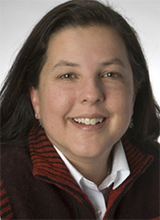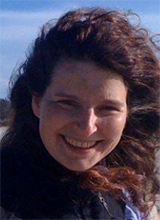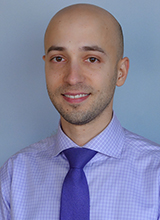Scholarly Expertise: Special populations

Amy Curtis
I am a child and adolescent psychiatrist at Seattle Children’s Hospital and faculty member at the University of Washington Medicine. My SCH practice locations include the Gender Clinic (Adolescent Medicine), Outpatient Psychiatry Clinic, Autism Center, and the inpatient unit- Psychiatry and Behavioral Medicine Unit (PBMU). I believe in delivering compassionate, evidence-based care in supporting patients and their families. My approach is both comprehensive and patient-centered, as it is important to consider the needs of the individual while also appreciating societal and cultural context. I specialize in working with diverse patient populations with various marginalized identities, such as those who identify as LGBTQ, gender diverse, and/or neurodiverse. I also work closely with the Adolescent Medicine Gender Clinic in supporting any mental health needs of transgender/gender diverse youth and their families. I also collaborate with colleagues in specialty medical clinics to coordinate care of medically complex patients. Additionally, I serve as a consultant with various school programs to support mental health initiatives and advocacy efforts.
Academically, I am involved with several initiatives both locally and nationally, particularly those that work to promote diversity and equity. I serve on committees supporting the SCH/UW CAP Fellowship Program, educating trainees and students through direct clinical supervision as well as with lectures and discussions. On a national level, I serve on the Sexual Orientation and Gender Identity Issues Committee (SOGIIC) for the American Academy of Child and Adolescent Psychiatry (AACAP). My clinical research focuses on finding strategies to better support the mental health and well-being of patients and families who are LGBTQ+. Additionally, I work on studies that explore the intersection between gender diversity and neuro diversity/autism spectrum.
Hower Kwon

Erin Dillon-Naftolin
I am a child and adolescent psychiatrist with experience in delivering evidence based care for youth with psychiatric disorders. My clinical work is primarily in the outpatient setting and I have experience with telehealth, community mental health, consultation to primary care and developing integrated care systems with pediatricians. I am a psychiatrist on the Partnership Access Line, which provides phone consultation regarding diagnosis and treatment to pediatricians and other primary care physicians throughout Washington, Wyoming and Alaska. I have worked as part of an integrated care team by providing consultation in person at Kent-Des Moines and Roosevelt clinics. I have expertise in the treatment of common childhood psychiatric disorders and I am particularly interested in treating anxiety and ADHD. I am also trained in cognitive behavioral therapy (CBT) and dialectical behavioral therapy (DBT) and incorporate this background in my work. I value working collaboratively with patients and their families to make a decision about treatment options based on the best evidence we have for safe and effective treatment.
Academically, I have enjoyed being part of the fellowship training program teaching about Integrated Care and currently co-chair the child and adolescent curriculum for the University of Washington Integrated Care Fellowship.

Cynthia Flynn

Rebecca Hendrickson
The Hendrickson research group explores underlying biological mechanisms related to the development and maintenance of posttraumatic stress disorder (PTSD) and related conditions, including mild traumatic brain injury, as well as the potential for interaction between different types of stress and trauma. Through the design and implementation of translational clinical studies, we apply this work directly to the pursuit of new treatment options for people who have experienced a traumatic stress.
A primary goal of our team is to understand broadly the ways traumatic stress interferes with people’s lives, and to prioritize the areas of greatest clinical need. We look for ways to prevent persistent symptoms after trauma, to match patients more quickly to the treatment options that will be most effective for them as individuals, and to develop new treatment options for those for whom current options are simply not adequate.
In addition to my research work, I am a staff psychiatrist in the VA PTSD Outpatient Clinic and a member of the VA Dialectical Behavioral Therapy (DBT) Team, and provide teaching and mentorship for residents in the UW Psychiatry Training Program.

Jessica Jenness
Dr. Jenness is a clinical child psychologist and Associate Professor in the Department of Psychiatry and Behavioral Sciences at the University of Washington. She earned her Ph.D. in Clinical Psychology from the University of Denver in 2015. Her past research includes NIMH-funded studies on the neural and behavioral changes that predict treatment response to behavioral activation for depressed adolescents (K23/NARSAD). As the director of the Adolescent Depression and Intervention Innovations (ADII) lab, her recent work focuses on innovative digital treatment approaches to improve adolescent depression care. Current projects include 1) adapting behavioral activation to an online platform, ActivaTeen (R03, NIMH R34); 2) leveraging paraprofessional coaching of video-guided depression care (Garvey Innovation Grant); and 3) developing and testing a digital just-in-time adaptive intervention (Sidekick; NIMH R61) as a first-step adolescent depression treatment within primary care settings. In addition to research, Dr. Jenness is an Attending Psychologist in the Mood and Anxiety Disorders Program at Seattle Children’s Hospital where she primarily treats adolescent depression and suicide. She has also trained mental health professionals at various sites around the US in the use of behavioral activation with adolescents.

Brittney Hultgren

Katarina Guttmannova
I am a developmental psychologist with additional training and expertise in quantitative methods. I am an associate professor in the UW Department of Psychiatry and Behavioral Sciences, a core member of the Center for the Study of Health and Risk Behaviors (CSHRB), faculty affiliate of the Center for Studies in Demography and Ecology (CSDE), and adjunct faculty at the UW School of Social Work. My main collaborations at UW involve colleagues from CSHRB but I also maintain strong research collaborations with my colleagues from the Social Development Research Group (SDRG), School of Social Work, and other departments. In addition to research, I occasionally teach graduate-level classes on research methods and evaluation in social welfare (SOCW505, SOCW506, SOCW507) and research and theory (SOCWL599) at the School of Social Work. I am also actively involved in mentoring graduate students and postdoctoral fellows.

